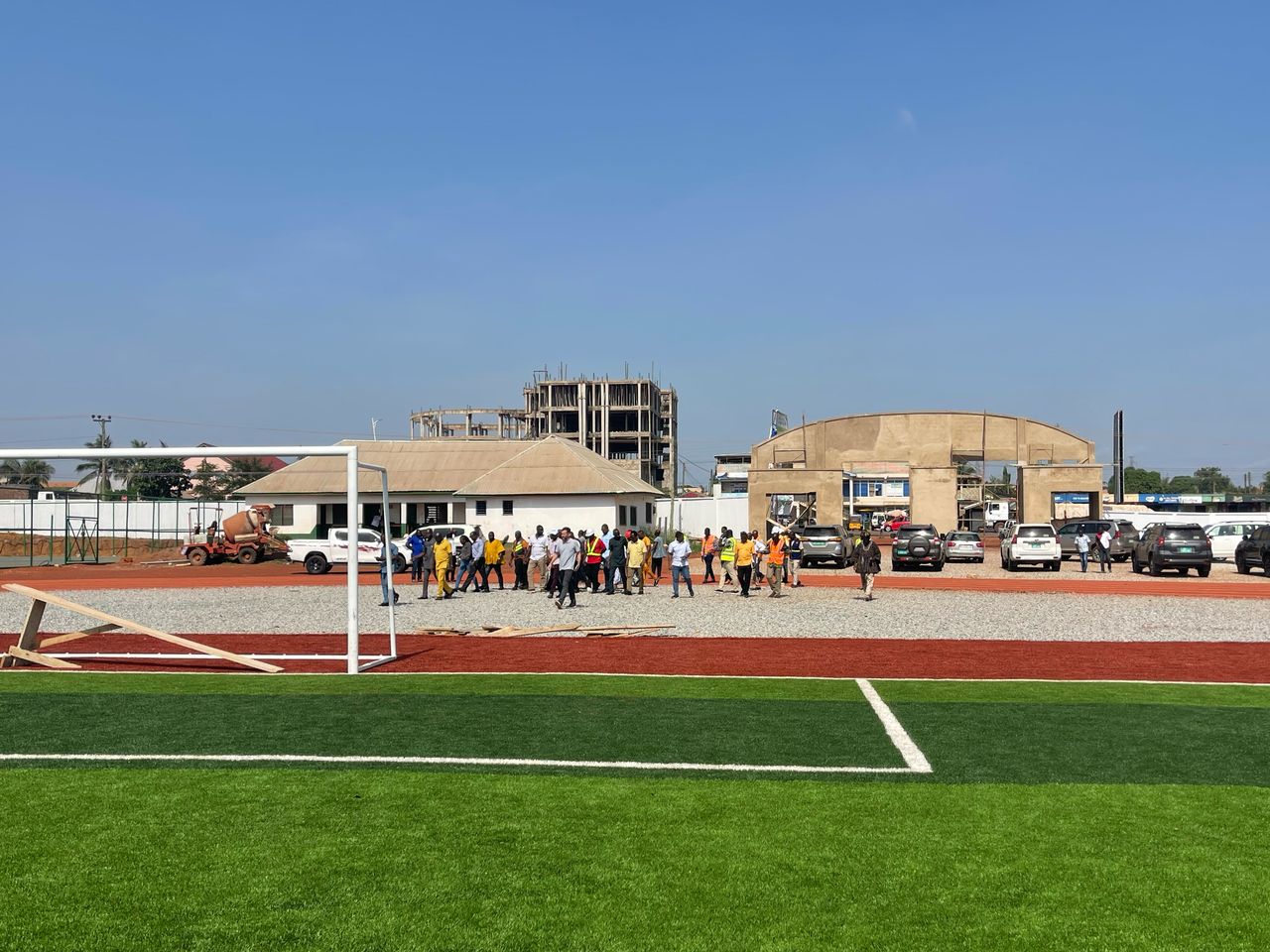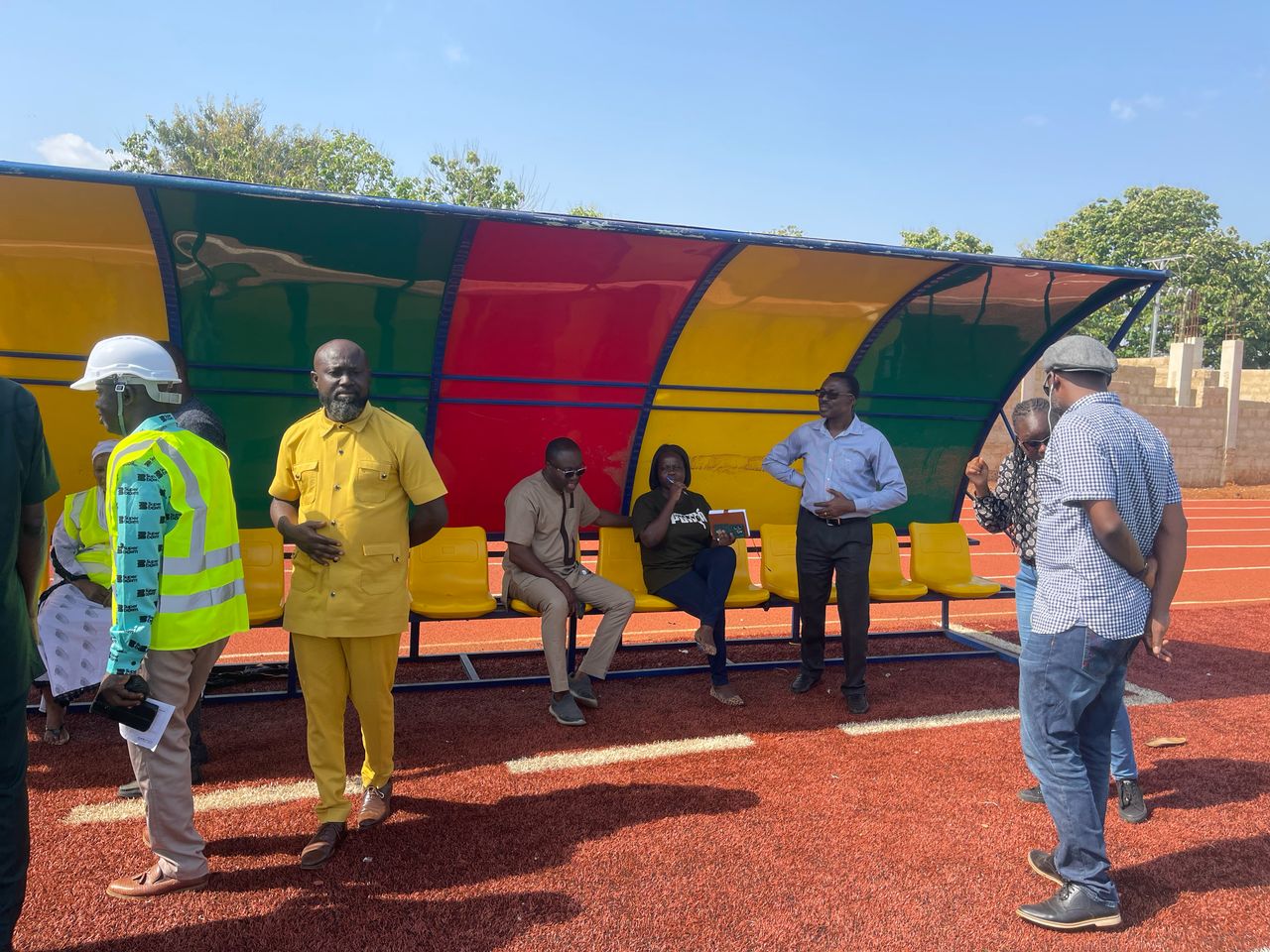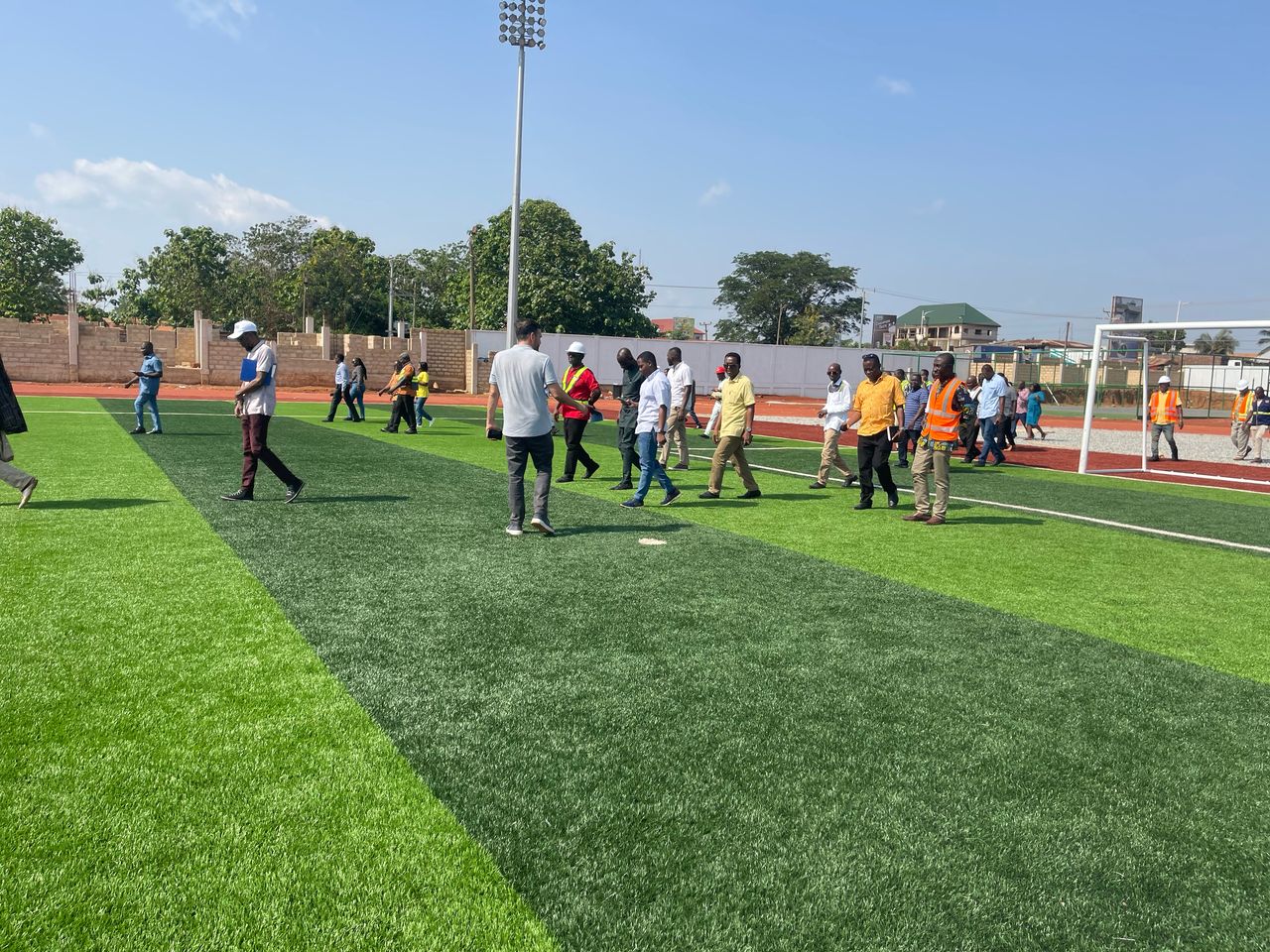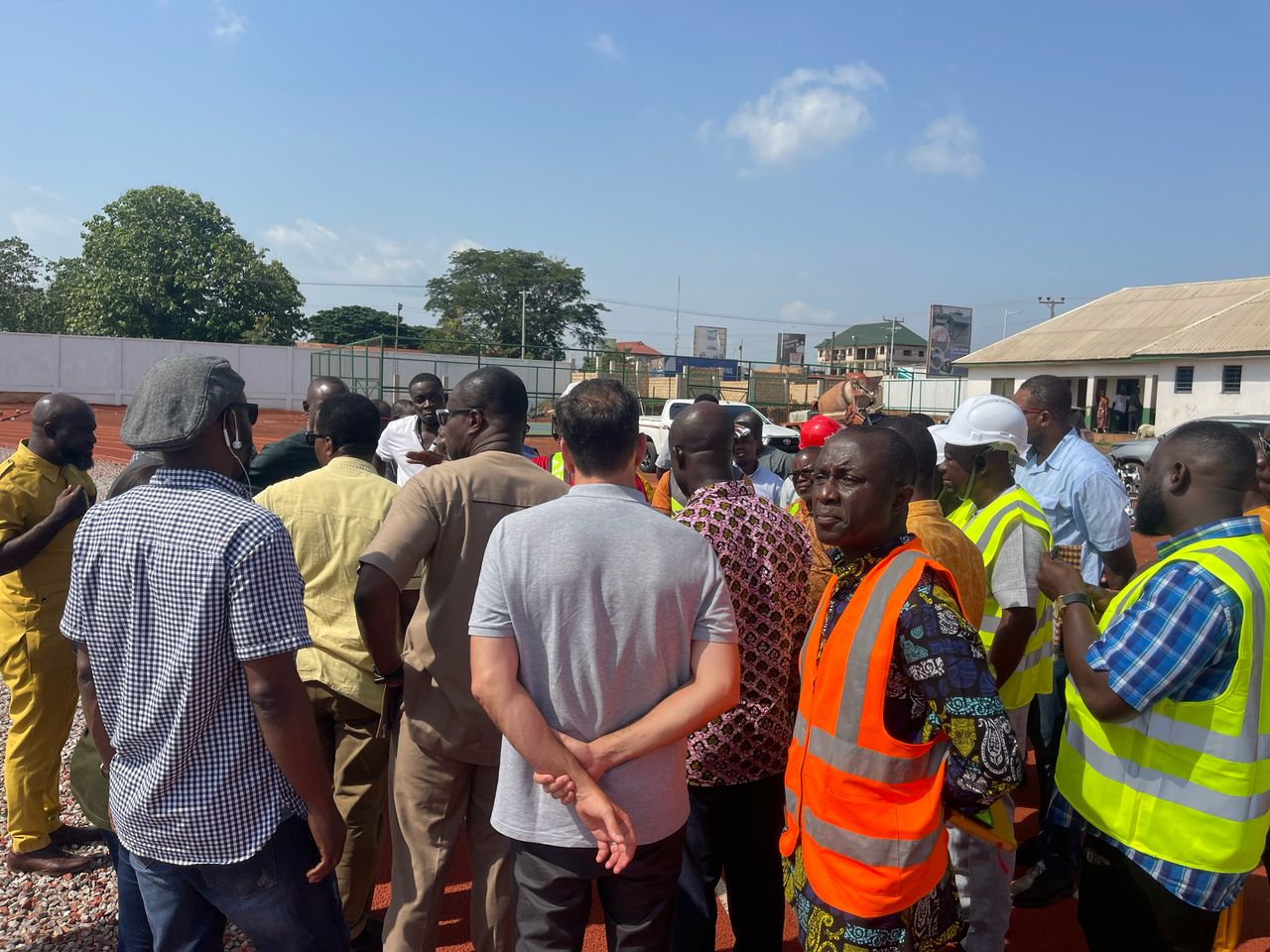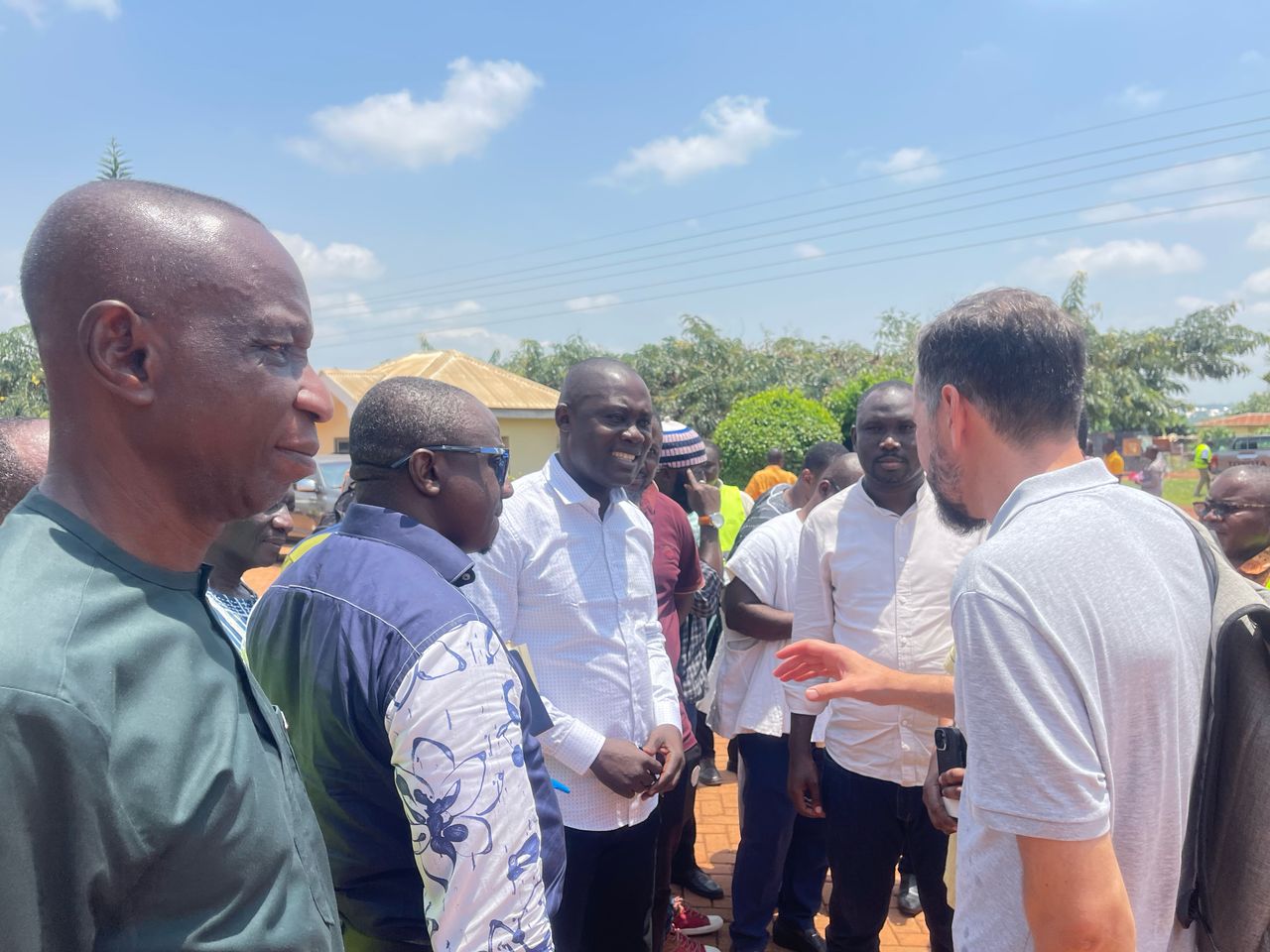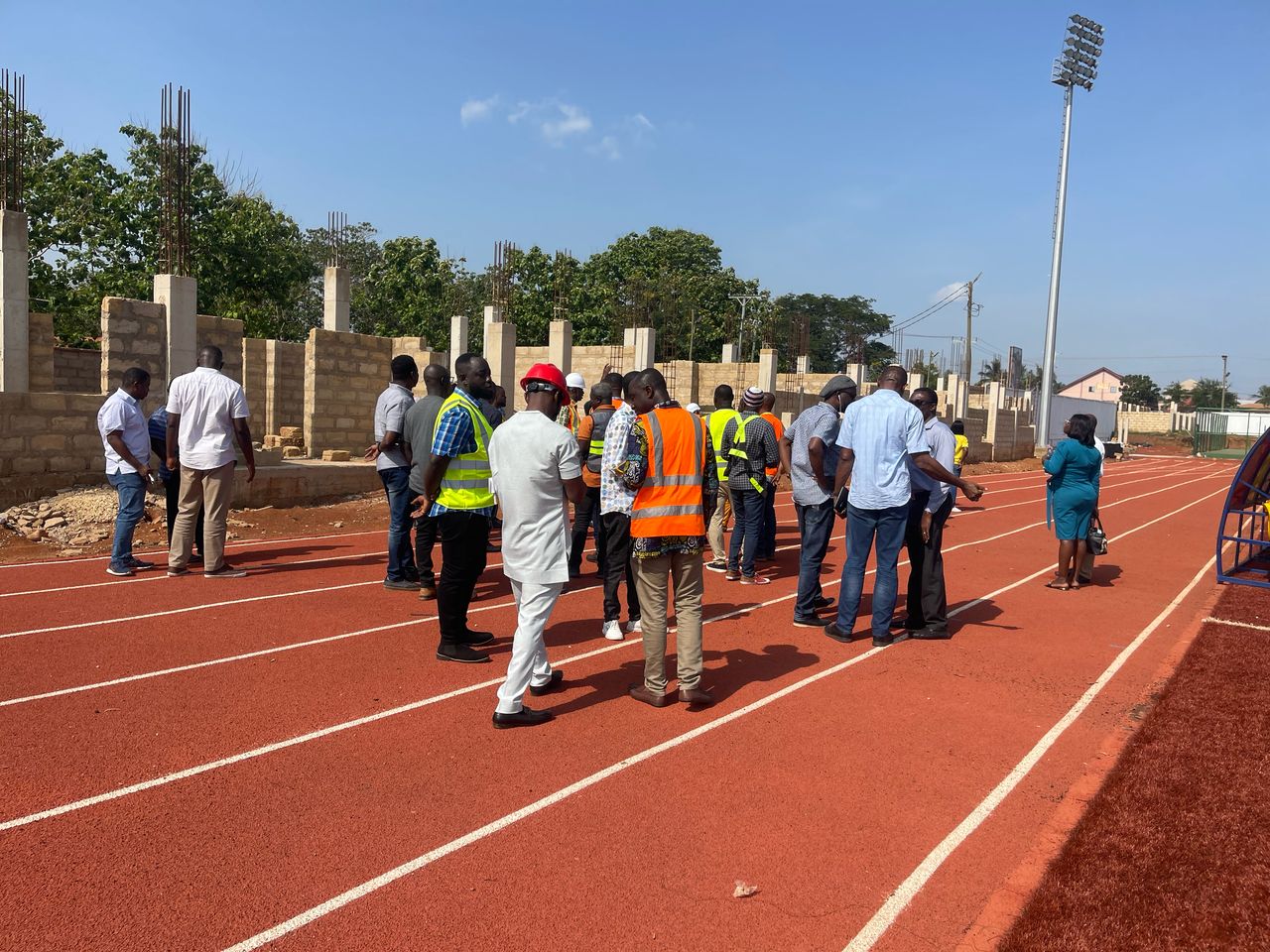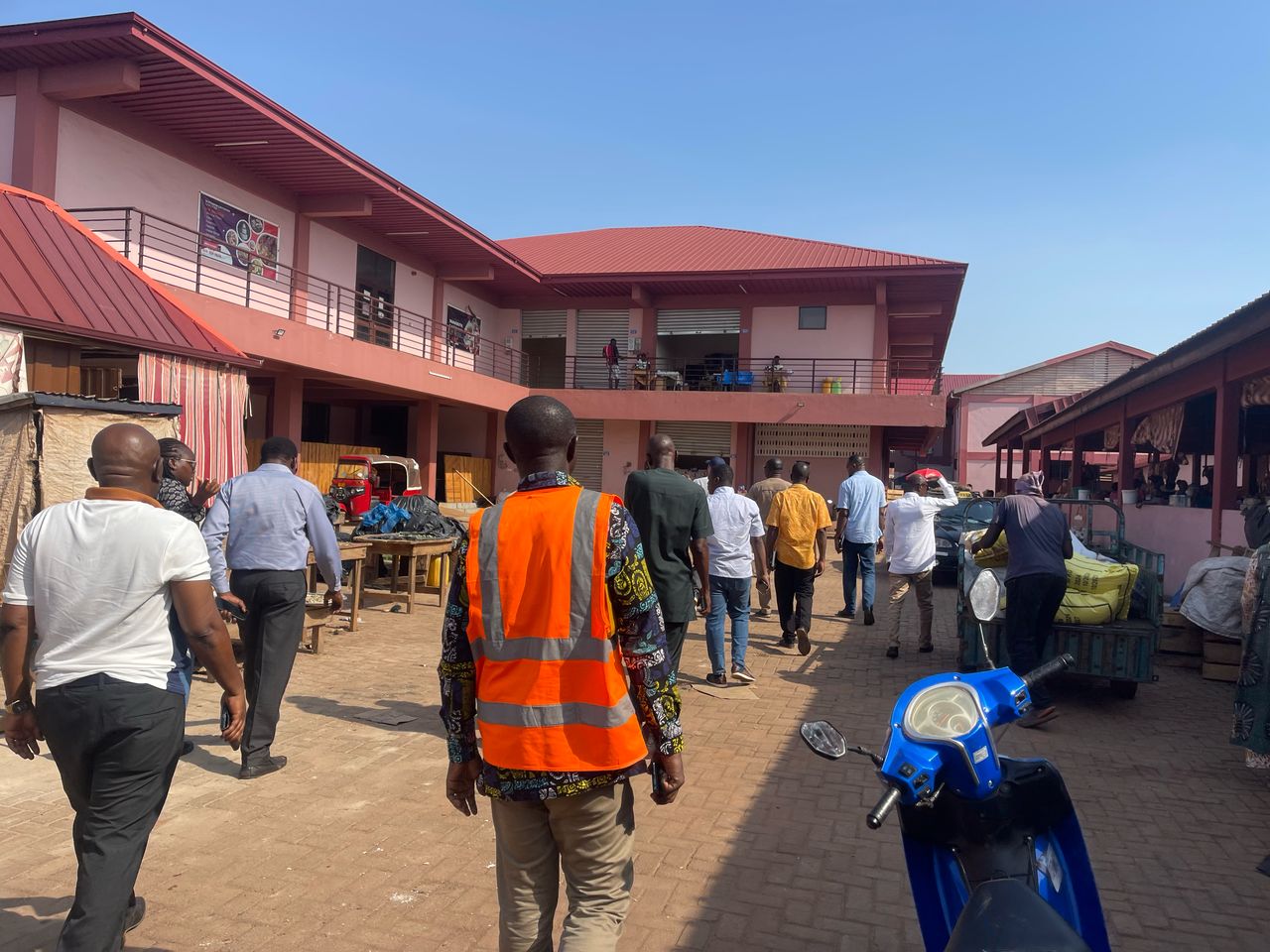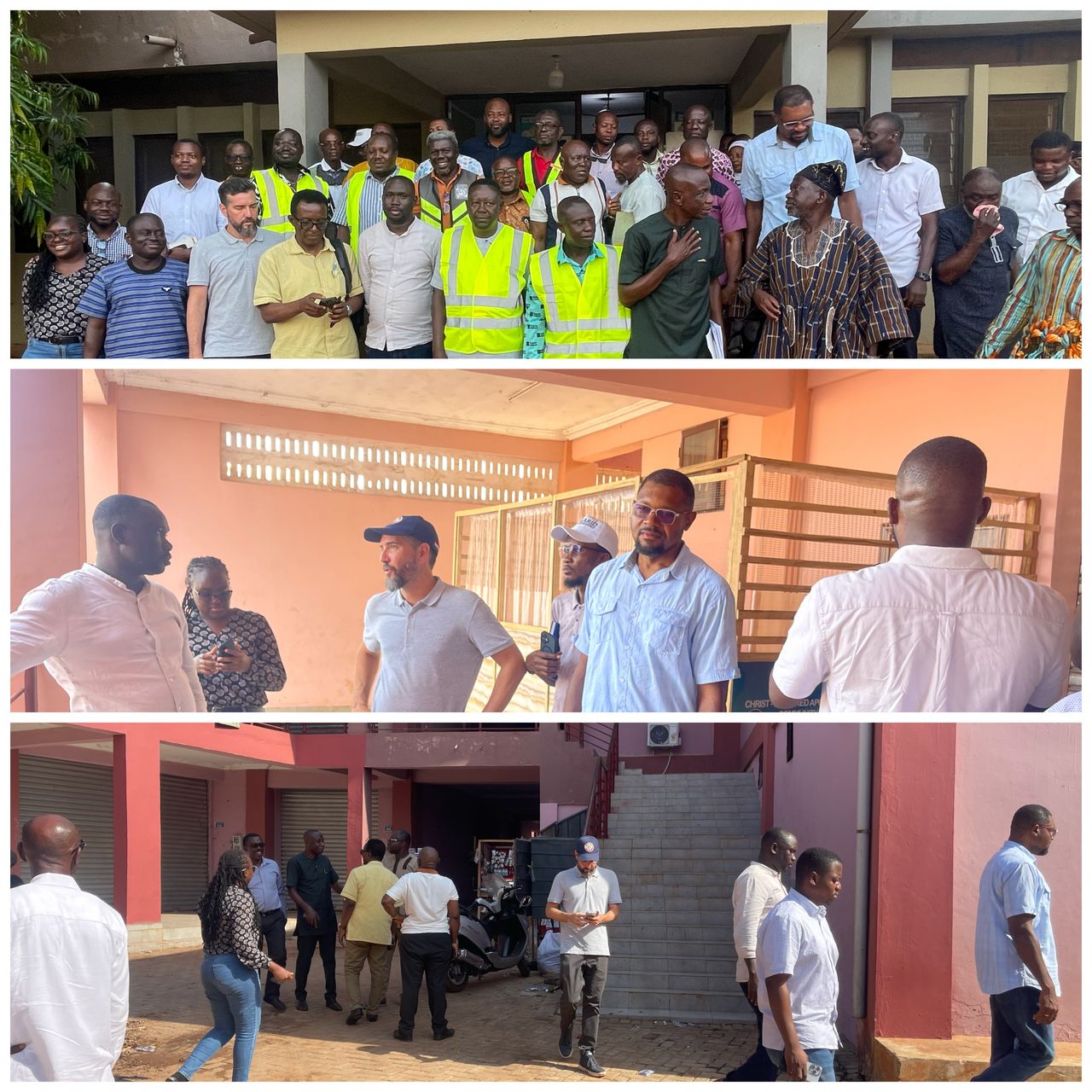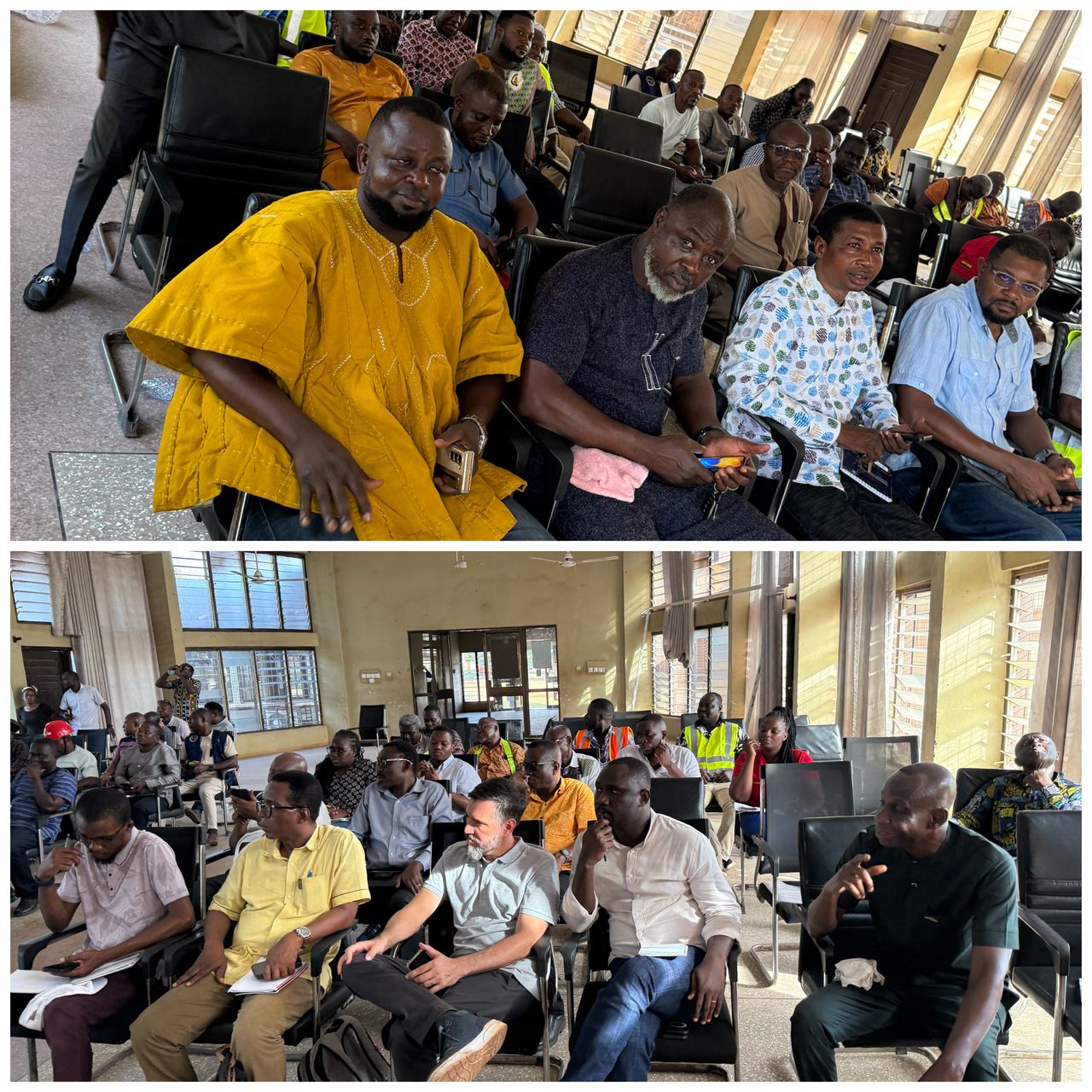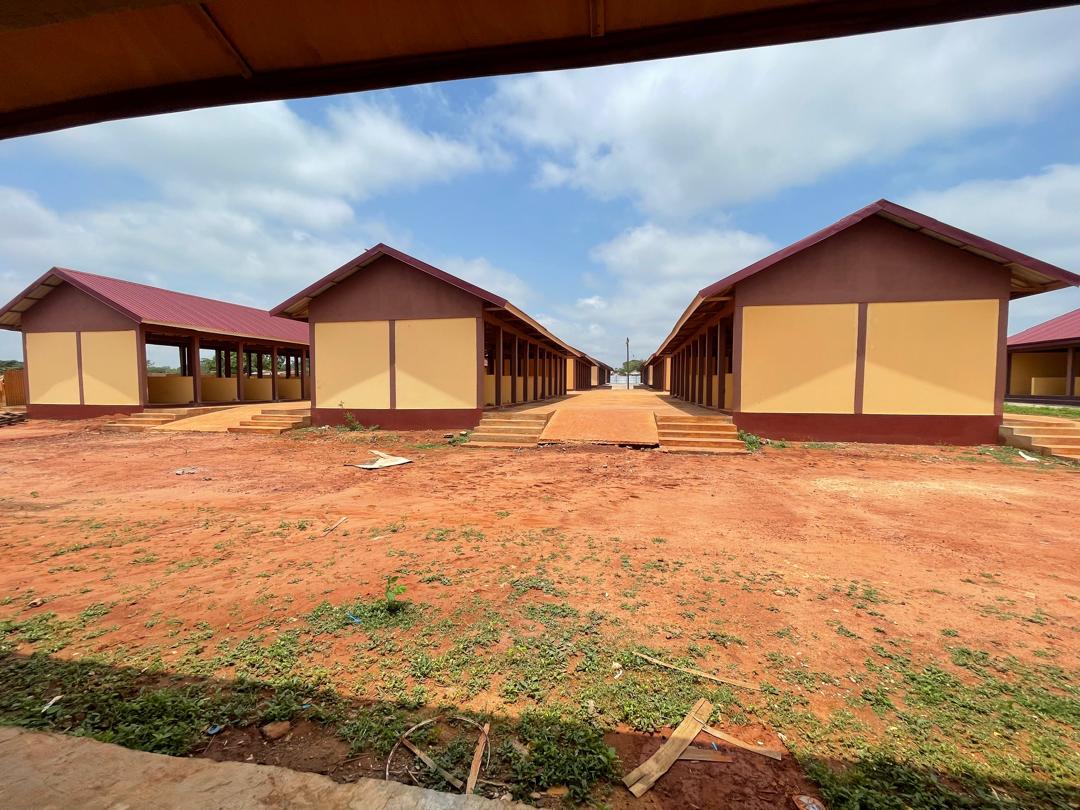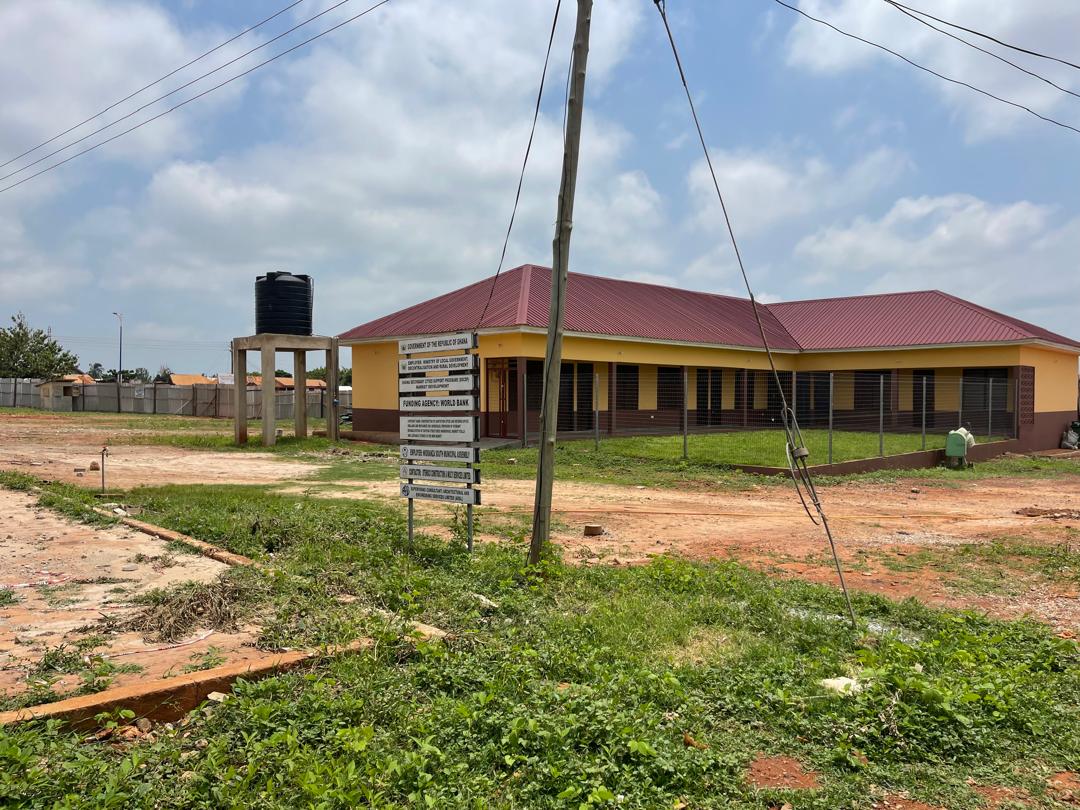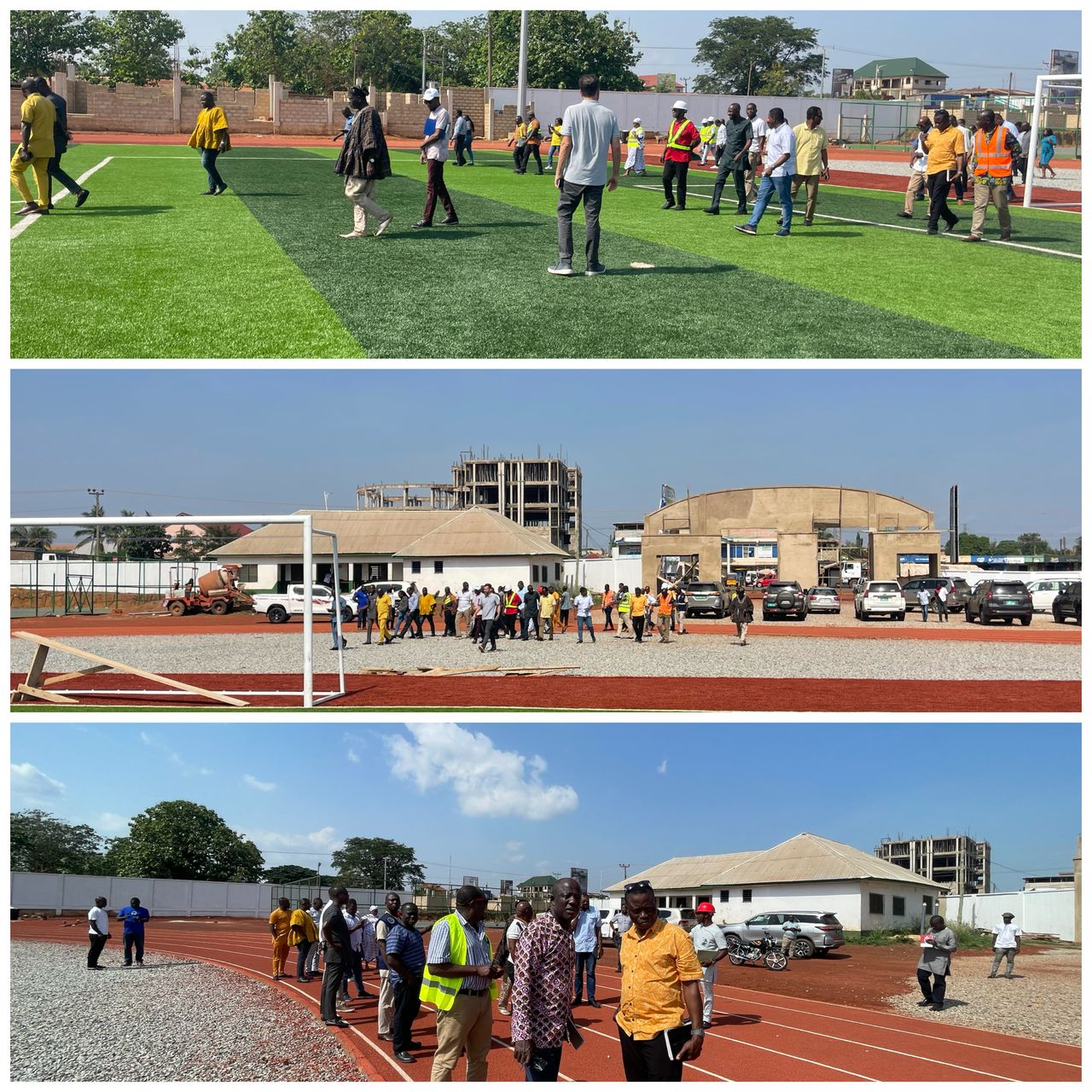The Implementation Support Mission (ISM) under the Ghana Secondary Cities Support Programme (GSCSP) advanced into its third day with a series of strategic engagements and project site visits across the Bono East Region. The delegation, comprising officials from the Ministry of Local Government, Chieftaincy and Religious Affairs (MLGCRA), the World Bank, Ministry of Finance, and the Office of the Head of Local Government Service (OHLGS), visited the Bono East Regional Coordinating Council (RCC), Nkoranza Municipal Assembly, and the Techiman Municipality.
The day commenced with a working session at the Bono East RCC, where officials presented the Council’s coordination role in the implementation of GSCSP projects. The RCC reaffirmed its commitment to supporting Municipal and District Assemblies across the region through technical backstopping, performance tracking, and institutional strengthening to ensure smooth and accountable programme delivery.
The mission then proceeded to the Nkoranza New Market, a major intervention under the Urban Development Grant (UDG). Although the market infrastructure is structurally completed, no stalls or shops have yet been allocated, and the facility is not yet operational. Assembly officials informed the team that allocations are scheduled to begin by the end of June 2025. The team encouraged the Assembly to expedite this process to ensure timely utilization and benefits to the local community.
During the visit, the mission also advised the Assembly to undertake greening and landscaping around the market to enhance environmental aesthetics and create a clean, green atmosphere for future traders and patrons. This directive was noted and welcomed by the Assembly, which committed to putting measures in place ahead of the full activation of the market.
In Techiman, the team visited the completed Nana Abena Market infrastructure project where some stalls have already been allocated and occupied. The mission impressed upon the Assembly the need to intensify stakeholder engagement and commercial sensitization to ensure that economic activity and viability around the facility begin to pick up rapidly. The Assembly was also encouraged to maintain the structure effectively and monitor the rollout of trading operations to sustain long-term benefits.
A highlight of the day’s field visit was the inspection of a multi-purpose sports park in Techiman, which features a football pitch, running tracks, and sections for volleyball and netball. Additional components, including a gymnasium, are expected to be added in the near future. The facility was commended by the mission team for its human-centered design and its potential to promote youth engagement, physical fitness, and community bonding.
Across the engagements, the mission team emphasized the importance of timely shop allocations, proactive maintenance, and landscape development to maximize the impact of GSCSP interventions. The need for effective grievance mechanisms and institutional accountability was also reiterated to ensure community trust and project success.
As the Implementation Support Mission continues, the World Bank and its partners remain committed to supporting local governments to deliver inclusive, resilient, and sustainable urban development across Ghana’s secondary cities.
Source: Darling Maame Efua Cann/Sandra Owusu Asamaoah/Stephanie Edem Klutsey
(Public Relations Unit MLGDRD)
